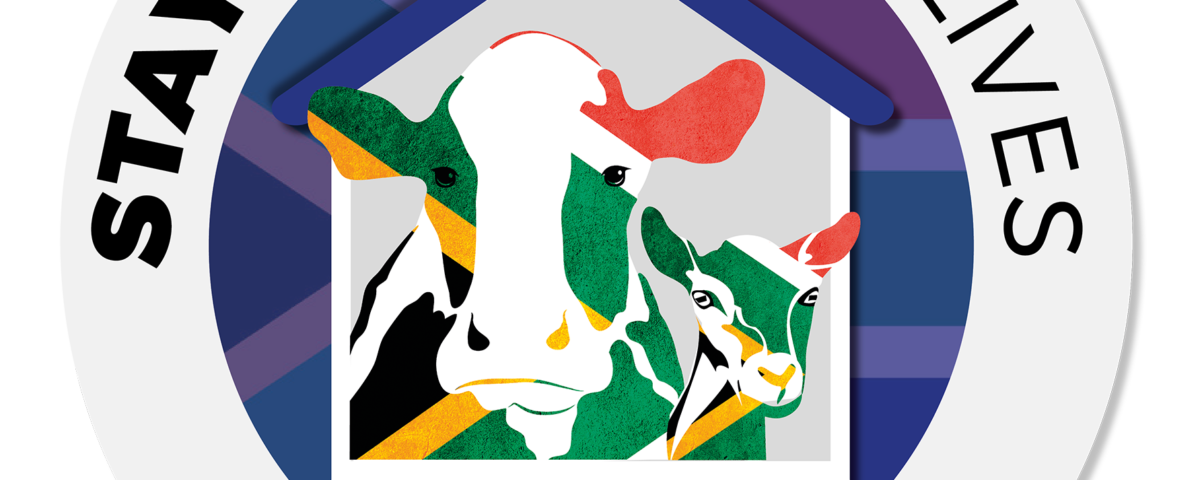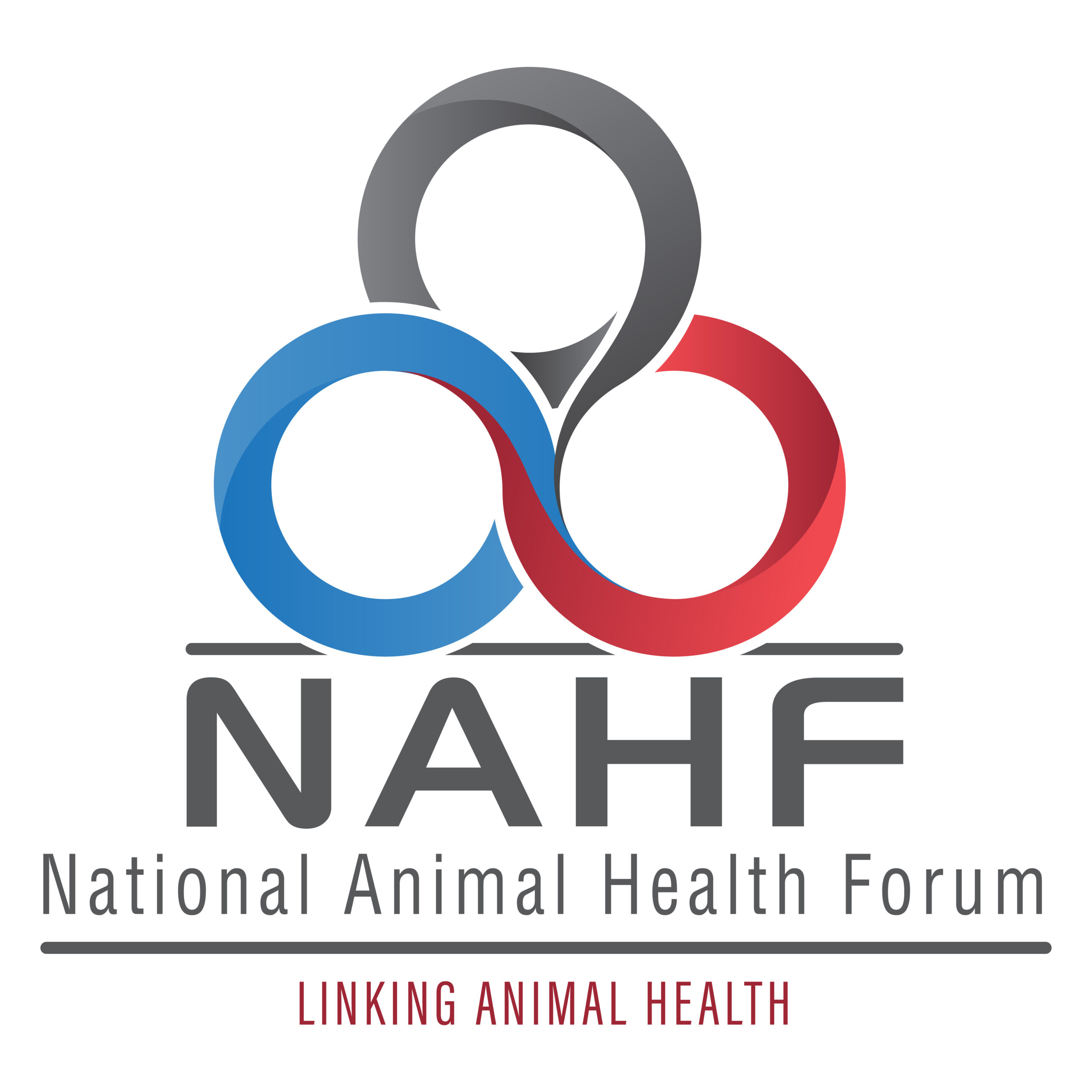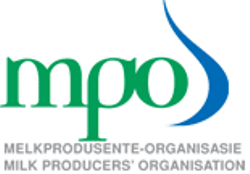
In 2020, the MPO undertook additional initiatives and activities over and above our normal day-to-day duties as a result of the COVID-19 pandemic and resultant restrictive measures. The highlights of the MPO services that made a difference to the lives of our dairy farmers in 2020 are summed up below.
1. DURING THE COVID-19 LOCKDOWN THE MPO:
- Influenced the market regarding the price level of unprocessed milk
Following an announcement by a processor that farmer milk prices would be reduced by 45 cents per litre and other anticipated announcements, the MPO responded with a press release on 1 April 2020. The market postponed and later withdrew the planned reduction of farmer milk prices.
The following graph is a simulation depicting the possible trend in the index (black line in 2020) if prices had been reduced for only one month and if the same actual trend for 2020 had then been applied. The black line indicates a calculated reduced turnover of R1,04 billion at farmer level.

The MPO Pointer titled “The mushroom effect in dairy producer price ‘discovery’”, published on 15 April 2020, further highlighted dangerous developments regarding reduced farmer prices.
“The MPO is aware of certain communications from downstream role players in the dairy value chain to milk producers regarding dairy price increases, as they pertain to farmers, processors, and retailers during a period of national disaster. These communications do not correctly interpret or portray the guidelines by the South African government regarding pricing during a period of national disaster.
The gist of the communications from certain processors and retailers was that price increases would not be possible due to the ‘restriction’ that basic food prices are not permitted to increase during this period. Another angle to this communication was that no price increases would be implemented during the lockdown period in view of the price sensitivity of food products during this period. Both these arguments were incorrectly used by downstream role players as justification for their position that negotiated producer price increases should not come into effect, or that recent producer price increases (like winter premiums) should fall away.
The opinion of the MPO is that Government Notice R.350 issued on 19 March 2020 by the Department of Trade and Industry and titled “Consumer and customer protection and national disaster management regulation and directions” specifically caters for increases in the price of basic foods during this period. However, it issues a stern warning against excessive price increases. The government notice deals in detail with the supply of goods and services in Annexures A and B.”
These two Pointers set the scene for farmer milk price direction and a further eight MPO Pointers amplified and illuminated trends and differences in the levels of the PPI for unprocessed milk and dairy products and the CPI for milk, cheese, and eggs.
Many role players in the market took note, among them the Competition Commission. The MPO provided information to the Commission which was used to publish a report regarding downstream pricing of dairy products and the lack of correlation in trends between the three indices.
- Formulated specific interventions during lockdown through Organised Agriculture
Letters from Agri SA to the Minister of Agriculture and the Presidency, dated 14 and 16 April 2020, under the heading, “Agricultural essential services – Emergency action needed’ are referred to here. Point two of the letter was substantiated and conceived by the MPO:
“2. Food outlets
Requirement: There was a dire need for fast food outlets and drive-throughs to be opened to keep on stimulating the food system. Farmers ran the risk of bankruptcy because of the lack of storage capacity and on-selling on the part of the off-takers of agricultural products.”
The MPO proposed the opening of fast-food outlets and drive-through food outlets. This resulted in a better understanding of the market and ensured progress with the lifting of the restriction on fast food outlets.
- Developed a user-friendly COVID-19 Contingency Plan for dairy farmers, including contact details of reputable service providers.
- Provided ongoing assistance to dairy farmers with essential services travel permits, to ensure uninterrupted transport of staff, products, and cattle.
- Shared information with international and local role players in the organised dairy industry and collaborated with Agri SA to ensure that dairy farmers have immediate access to COVID-19 related information, such as on-farm COVID-19 protocols.
- Promoted the use of milk to boost the immune system and created awareness of the important role of dairy farmers in building a healthy society through the production of a nutritious, affordable, and accessible source of food. Radio interviews with dairy farmers, Facebook posts, and articles in various digital publications were arranged.
- Launched the MPO Project 1 – a collaborative initiative between our dairy farmers and milk processors to mitigate the effects of the COVID-19 pandemic. Participants in the project donated up to 1% of daily milk production and other food parcels to feed the most vulnerable and needy members of our society on an ongoing basis. This was a highly successful initiative with high-level government involvement and wide public recognition.
- Celebrated World Milk Day online with the theme “SA loves milk” – campaign attracted international and local participation in various challenges with donated prizes for the winners.
- Developed The Dairy Mai app (dairymail-app.co.za) in 40 days during the COVID-19 lockdown, when the magazine could not be delivered, to ensure that dairy farmers still had access to the latest news and information in the dairy sector.
2. OTHER MPO ACTIVITIES ALIGNED TO MPO STRATEGY:
PROFITABILITY
Market development and protection
- The MPO ensures that the existing tariff protection on dairy products, which also serves as protection for producer milk prices, is maintained. The MPO lodged an objection on behalf of the South African dairy farmers against the application by Soy Africa for the creation of a temporary Schedule 4 rebate facility (waiver of the tariff of R4,50 per kg) for hat maker roller dried RD25 milk preparation with whey. The MPO’s objection was based on the fact that the product cannot be meaningfully distinguished from similar products (all milk powders), and that this creates a significant risk for the circumvention of the tariff through misdeclaration and would pose a threat to the local manufacturer that sources dairy ingredients from both milk producers and processors in South Africa. The International Trade Administration Commission (ITAC) decided to reject the application.
Improved competitiveness
- The MPO monitored dairy imports and initiated actions through Agri Inspec. In October 2020, an amount of 664 000 kg of UHT processed milk was imported through the Mananga border post with the Kingdom of Eswatini (Swaziland). This volume triggered a red flag in the Agri Inspec system as an abnormal transaction. The volume from Eswatini in November was 467 000 kg. The investigation is ongoing and role players in the secondary industry are participating.
- In September 2020, 18 tonnes of cheddar cheese entered South Africa through Cape Town harbour, originating from the Netherlands, and priced at R26,85. In November, 19,5 tonnes of cheddar cheese entered South Africa through Cape Town harbour, originating from the Netherlands, and priced at R25,30. Following discussions with Agri Inspec, SARS is currently liaising with the relevant parties.
- Agri Inspec is liaising with the relevant embassies to clarify the significantly lower FOB price in July and August 2020 for imported skimmed milk powder (SMP) from Belgium and France, while the international price for SMP did not fall during this time, and the rand did not strengthen. The October and November 2020 prices followed the same trend.
- The MPO is in the process of developing a base reference price model at dairy farmer level that will be transparent, simple, and dynamic. The reference price will serve as a pricing guide and is aimed at improving the negotiating position of dairy farmers within the value chain.
- The MPO is liaising with the Land Bank regarding possible collaboration in the areas of developing farmer funding and skills development support.
- The MPO collaborated with several government departments and SOEs to ensure a secure environment in which producers can produce their milk.
- Regular meetings and interactions with role players in the whole value chain, i.e. banks, input suppliers, processors, and retail, contributed to the strategic activities of the MPO.
DAIRY PERSONALITIES
Communication
- The MPO’s virtual annual congress and awards ceremony held on 4 November 2020 was a huge success, with 184 delegates attending the event. David Beca, the director of Red Sky Agricultural Pty Ltd, Australia, gave two presentations on South African dairy performance strengths and weaknesses compared to major exporting nations and on building business resilience into farm production systems. Tim Noakes gave a presentation on the scientific evidence that saturated fat in animal produce (like dairy) is essential for optimum human health. Various watch parties were organised throughout the country and Kasselshoop cheese and wine hampers, sponsored by Nedbank, were delivered to the participants.
- The MPO refined its social media communication platforms and kept our dairy farmers and the general public informed and engaged through What’sApp and the MPO’s Facebook page.
Member-centric focus
- Although face-to-face meetings were not possible, the MPO effectively communicated with our dairy farmers in the regions through virtual meetings and webinars.
- Regional virtual conferences on relevant topics, featuring well-known expert speakers, were held.
- Various dairy farmers were visited and their concerns or issues were attended to by the MPO.
- Four full-time regional managers were appointed, to interact with and assist our dairy farmers who are located in the six interior provinces – MPO North, KwaZulu-Natal, Eastern Cape, and Western Cape. Enquiries from producers were addressed either in person or on a virtual basis.
- Collaboration with processors to sponsor the processing, packaging, and distribution of milk donated by dairy farmers for the MPO’s Project 1.
Transformation and training
- The MPO Training Institute presented a variety of online training courses during lockdown. Online training was presented on biosecurity management, the dairy code of practice for milk producers, dairy production management, and the sensory evaluation of cheese. An online Dairy School was presented by more than 20 specialists in the dairy industry to veterinary students, animal health technicians, and state veterinarians to introduce them to the characteristics of the dairy industry and encourage them to pursue a career focusing on dairy production animals. The MPO Training Institute also developed an online learning platform for farmers and farmworkers that includes online courses on topics such as dairy calf and heifer rearing, feeding, and health care.
PLANET/ENVIRONMENTAL ISSUES
Stewardship
- The MPO plays a significant role in promoting sustainable dairy farming (Farming for the future) through the annual MPO Nedbank Stewardship Awards which are supported by the WWF. A record number of 19 dairy farmers from all over the country were nominated for the awards. The event and results received wide media coverage and recognition for the responsible and sustainable way dairy farmers are helping to feed the nation. It is extremely important that consumers are informed that the dairy products they buy are produced by farmers who prioritise the safety and quality of their product, environmentally friendly farming practices, the well-being of people and animals on the farm, and the upliftment of the surrounding community.
Animal health, welfare, and biosecurity
- Together with the Dairy Standard Agency, the MPO was instrumental in the development of an audit tool to evaluate welfare aligned to SABS standard SANS 1694 and biosecurity on farms. The tool will be rolled out in 2021.
- The CEO of the MPO was appointed as chairman of the board of the National Animal Health Forum (NAHF) and chair of the member council of the NAHF. The NAHF plays an important role by interacting with public institutions such as DALRRD to optimise animal health and biosecurity, not only in the dairy industry but in the entire livestock sector.
Published on Tuesday, 9th February 2021 - 12:47
Recent Posts
disclaimer









